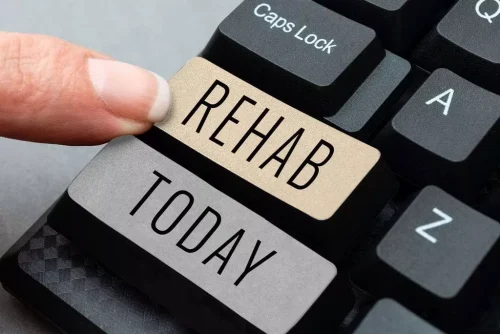A 2020 study found the alcohol warnings for antibiotics on these inserts aren’t always the same. You may have read online that alcohol reduces the effectiveness of some antibiotics. If you’re healthy, moderate alcohol use shouldn’t affect how well an antibiotic works, notes Dr. Clayton. Alcohol can have many negative effects on your health, including on liver function, digestion and heart health. Frequent alcohol use can also weaken your immune system, making it easier to pick up contagious illnesses. Just a few days of antibiotics can wipe out uncomfortable or painful illnesses or infections.
Limit daytime naps
Animal (typically rodent) models of acute or chronic alcohol administration onsleep have provided valuable insights into the neurochemical effects of alcohol on brainstructures and systems that play a role in sleep regulation, however, many questions remainunanswered. At this time when poly-substance dependence iscommon, it also is becoming increasingly relevant to investigate the interactive effects ofsubstances of abuse on sleep behavior and regulation. In the present study, which focused on the effects of alcohol consumption on sleep quality among adults aged 20 years and older, we found that AUDIT-KR and PSQI-K scores were significantly correlated among male subjects. In particular, we learned that alcohol consumption patterns are related to subjective sleep quality, sleep duration, and sleep continuation.

What can I not eat or drink if I’m taking benzodiazepines?

While heavy alcohol use can trigger insomnia, the opposite is also true. People with insomnia have an increased risk of developing alcohol use disorder, potentially because many individuals turn to alcohol as a sleep aid. For people who snore or who have sleep apnea—a disorder that causes repeated pauses in breathing during sleep—drinking alcohol tends to aggravate symptoms. In the first half of the night, when the body is metabolizing alcohol, studies show people spend more time in deep, slow-wave sleep and less time in REM sleep. Sleep architecture is biologically driven and finely calibrated to meet the body’s needs during nightly rest—changes to the natural, typical structure of sleep aren’t generally good for health or well being. REM sleep, which gets shortchanged in the first half of the night under the influence of alcohol, is important for mental restoration, including memory and emotional processing.
- While “relaxed” may sound appealing, alcohol has also been shown to negatively affect sleep and other physiological processes that occur during sleep.
- This is in agreement with our findings that, among men, drinking decreased overall sleep duration and increased sleep disturbances.
- That way, you can benefit from these medications and reduce the risk of problems along the way.
- More than half the women studied reported trouble falling asleep, waking tired, and/or waking several times a night.
- That’s because alcohol disrupts what’s known as your sleep architecture, the normal phases of deeper and lighter sleep we go through every night.
Does alcohol help you sleep?
Though Zeitzer advises night owls to go to sleep before 1 a.m., he knows it’s easier said than done. Getting sunlight in the morning and sticking to an earlier routine every day of the week could shift alcohol insomnia your sleep patterns, but it doesn’t change your chronotype. “Biologically speaking, it’s very much like a rubber band — you take a day off and you snap back to where your body wants to be,” he said.
Normal sleep cycles through four stages, which are either considered rapid eye movement (REM) sleep or non-REM sleep. Alcohol is classified as a central nervous system depressant, meaning it slows down brain activity. While “relaxed” may sound appealing, alcohol has also been shown to negatively affect sleep and other physiological processes that occur during sleep.

His team plans to examine whether particular late-night behaviors, rather than timing per se, are linked to poor mental health. There may be many explanations for sleep timing’s link to mental well-being, but Zeitzer thinks it likely comes down to the poor decisions that people make in the wee hours of the morning. When the researchers analyzed the data, they were surprised to find that aligning with one’s chronotype was not the best choice for everyone’s mental health. It was better, in fact, for night owls to lead a misaligned life. The left panel(KC+) shows the result of averaging responses that included K-complexes. The rightpanel (KC-) show the result of averaging responses not including K-complexes.
- People who go to bed with alcohol in their system may be more likely to wake early in the morning and not be able to fall back to sleep, another consequence of the rebound effect.
- Participants who did not drink alcohol in the past year were classified as ‘non-drinkers’.
- Guy Meadows, a sleep researcher and co-founder of The Sleep School, an online platform offering science-based support around sleep, told Live Science that alcohol affects the four stages of sleep in different ways.
- As a general rule, Meadows said, people should aim to leave at least three to four hours between drinking and sleeping to avoid sleep disruption.
- “The worst-case scenario is definitely the late-night people staying up late,” Zeitzer said.
She holds a professional certificate in scientific writing from Stanford University School of Medicine and has contributed to many major publications including Insider and Verywell. As a passionate advocate for science-based content, she loves writing captivating material that supports scientific research and education. In her spare time, you can often find her exploring nature with her husband and three children. If you’re struggling to get enough quality rest, talk to a health care professional about ways to improve your sleep. Making a plan to focus on better sleep habits can help you feel your best and improve your overall health.
We’re transforming healthcare
From a general neurophysiological perspective, the onset and maintenance of sleep involves depolarizations of the thalamocortical neural circuits (Saper et al., 2010). The ‘sleep-wake switching system’ resides within the lateral hypothalamus, the ventrolateral preoptic area, and the median preoptic area. In contrast to generalized sleep activity across the brain, “local” sleep involves activities in certain neurons or neuronal assemblies leading to regional sleep-like neuronal activity patterns.
- This side effect happens to me almost every time I have a drink at night.
- People who drink alcohol before sleep are also more likely to experience breathing difficulties at night.
- The temperature rhythm had normalized by three weeks inmost patients.
- You should be aware of how alcohol affects you and your sleep schedules.
- One benzodiazepine that’s noteworthy — even though it’s not approved (and illegal) in the United States — is flunitrazepam.


